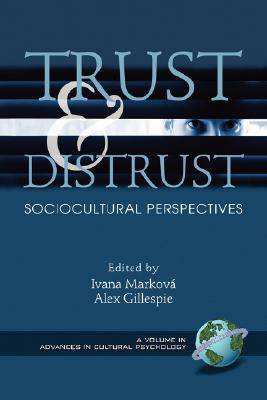
- Afhalen na 1 uur in een winkel met voorraad
- Gratis thuislevering in België vanaf € 30
- Ruim aanbod met 7 miljoen producten
- Afhalen na 1 uur in een winkel met voorraad
- Gratis thuislevering in België vanaf € 30
- Ruim aanbod met 7 miljoen producten
Zoeken
Trust and Distrust
Sociocultural Perspectives (PB)
€ 60,95
+ 121 punten
Omschrijving
The dynamics of trust and distrust are central to understanding modern society. These dynamics are evident at all levels of society, from the child's relation to caregivers to the individual's relation to the state, and they span from taken for granted trusting relationships to highly reflective and negotiated contractual interactions. The collection of papers in this book questions the diverse ways in which the concept of trust has been previously used, and advances a coherent theorisation of the socio-cultural dynamics of trust and distrust. In this volume, trust and distrust are analysed in relation to lay knowledge and situated in historical, cultural and interactional contexts. The contexts analysed include witch-hunting during the Reformation, China before and after the move to capitalism, building close personal relationships in South Korea, the representation of political corruption in Brazil, tourists bargaining for souvenirs in the Himalaya, disclosing being HIV+ in India, the historical shaping of trust in Portugal, and the role of trust and distrust in the economic development of the Baltic States. Throughout these analyses, and in associated commentaries and theoretical chapters, the focus is upon the cultural and social constitution of trust and distrust.
Specificaties
Betrokkenen
- Uitgeverij:
Inhoud
- Aantal bladzijden:
- 320
- Taal:
- Engels
- Reeks:
Eigenschappen
- Productcode (EAN):
- 9781593118419
- Verschijningsdatum:
- 14/11/2007
- Uitvoering:
- Paperback
- Formaat:
- Trade paperback (VS)
- Afmetingen:
- 156 mm x 234 mm
- Gewicht:
- 449 g

Alleen bij Standaard Boekhandel
+ 121 punten op je klantenkaart van Standaard Boekhandel
Beoordelingen
We publiceren alleen reviews die voldoen aan de voorwaarden voor reviews. Bekijk onze voorwaarden voor reviews.










